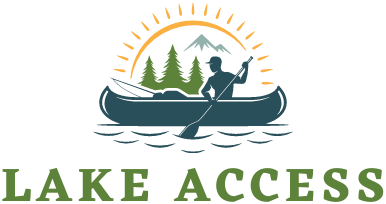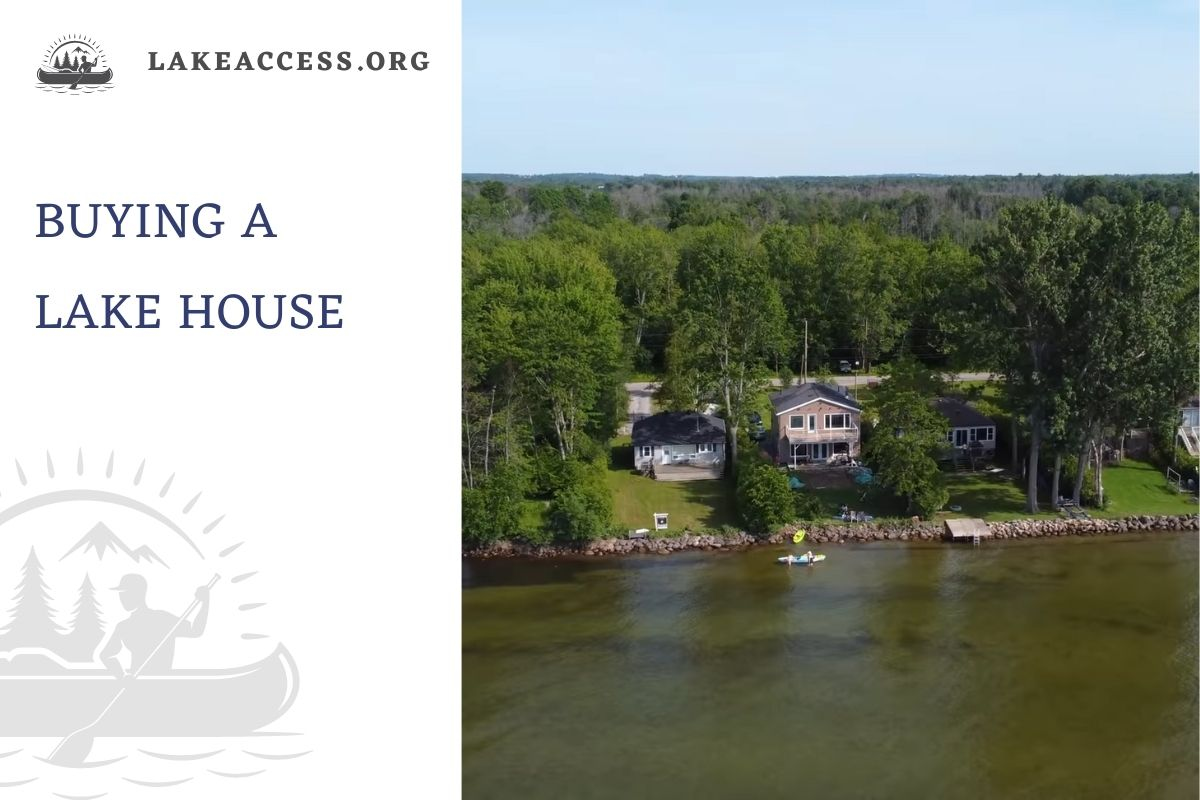If you’ve ever imagined waking up to the calm embrace of serene waters, accompanied by the cheerful melodies of birds and awe-inspiring views, purchasing a lake house could be the ideal choice. Beyond being a mere residence, a lake house presents a whole lifestyle centered around peace, outdoor adventures, and a refreshing getaway from the fast-paced urban routine. In this comprehensive guide, we will delve into the complete process of acquiring a lake house, starting from discovering the perfect location to grasping the finer points of owning waterfront property. Get ready to embark on a journey toward fulfilling your tranquil lakeside aspirations.
Choosing the Perfect Lake House
As you embark on the journey of purchasing a lake house, a pivotal initial choice revolves around its purpose – will it serve as your primary dwelling or a vacation retreat? Reflect on the distance from your main abode, alongside the ease of access to your chosen lakefront haven.
Undertaking thorough research into various lakes is of paramount importance. Some lakes are renowned for their peaceful ambiance, catering to individuals in search of solitude. On the flip side, certain lakes buzz with water-centric sports and vibrant community gatherings. Additionally, proximity to essential local amenities such as grocery stores, medical facilities, and recreational options should factor into your deliberations.
• Determining Your Goals
Begin by clarifying your objectives for the lake house. Is it a vacation retreat, an investment property, or a future retirement haven? This will influence your location choice and the amenities you prioritize.
• Proximity to Your Primary Residence
Consider how far you’re willing to travel to reach your lake house. A location within a few hours’ drive may be preferable for weekend getaways, while a more remote spot might suit those seeking total seclusion.
• Scenic Beauty and Views
One of the primary attractions of a lake house is the view. Whether you prefer breathtaking sunsets or panoramic mountain vistas, prioritize locations that offer the scenic beauty you desire.
• Lake Access and Activities
Easy access to the lake is essential. Check if the property has its own waterfront, a dock, or if there’s a public access point nearby. Think about the water activities you enjoy and ensure the lake supports them.
• Safety and Infrastructure
Safety should be a top concern. Research the area’s crime rate, emergency services, and the stability of the surrounding infrastructure. A remote location can be appealing, but it should also have adequate amenities.
• Environmental Considerations
Respect for the environment is crucial. Investigate the health of the lake, water quality, and the potential for natural disasters like floods. A pristine environment will enhance your lake house experience.
• Local Regulations and Zoning Laws
Different locations have different regulations governing lakefront property. Research zoning laws, building codes, and any restrictions that might impact your plans for the property.
• Future Development Plans
Find out about any planned developments in the area. New construction could affect your privacy, views, and property value. Being informed about future changes is crucial.
• Market Trends and Property Value
Consider the real estate market trends in the area. A lake house should not only be a personal haven but also a sound investment. Understanding property value trends will help you make an informed decision.
• Budget and Affordability
Set a clear budget for your lake house and stick to it. Remember to account for maintenance costs, property taxes, and potential renovations.
• Seasonal vs. Year-Round Use
Decide if you want a lake house for seasonal use or year-round living. This decision will impact the location’s accessibility, infrastructure needs, and overall lifestyle.
• Privacy and Community
Evaluate whether you’re looking for a tight-knit lake community or a more secluded experience. Some prefer the camaraderie of neighbors, while others seek solitude.
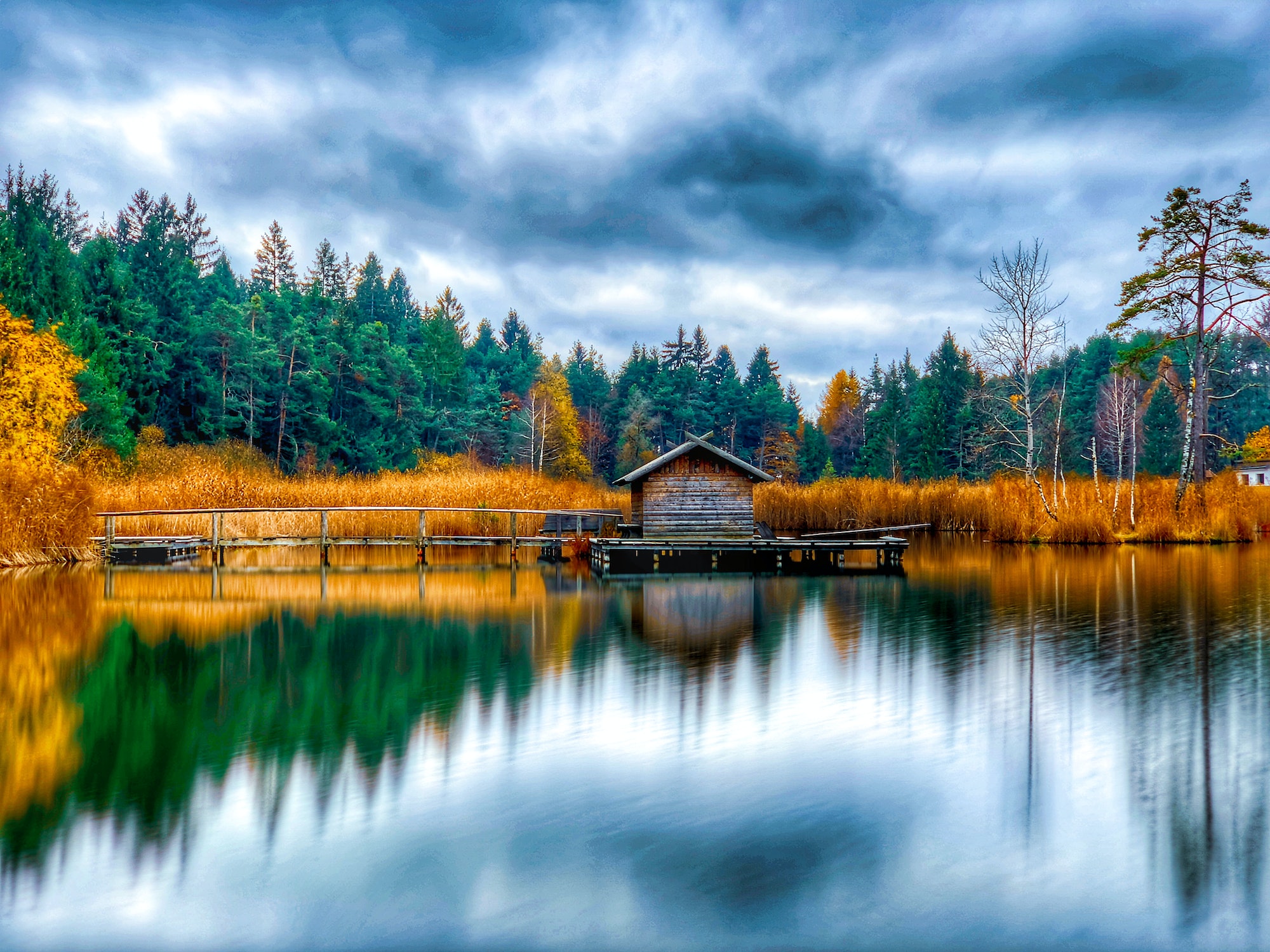
Pros of Buying a Lake House
• The Appeal of Lakefront Living
Lakefront properties have an undeniable allure. The proximity to the water provides a sense of calm and tranquility that is hard to replicate elsewhere. The soothing sound of waves and the fresh breeze contribute to a unique living experience.
• Proximity to Nature and Recreation
One of the primary advantages of owning a lakefront house is the immediate access to a variety of outdoor activities. From swimming and fishing to kayaking and boating, lakefront living offers a wide range of recreational options.
• Serene and Relaxing Environment
The serene ambiance of a lakefront property provides an excellent escape from the hustle and bustle of city life. It’s a perfect retreat for those seeking peace and relaxation.
• Potential Investment Value
Lakefront properties often hold their value well, and in some cases, they can appreciate significantly. A well-maintained lakefront house can be a solid investment opportunity.
•Privacy and Seclusion
Many lakefront properties offer a level of privacy that is hard to find in other types of real estate. The natural surroundings act as a buffer from neighbors and the outside world.
• Water-Based Activities
Living by the water opens up a world of recreational activities. Whether it’s swimming, boating, or simply lounging by the shore, there’s always something to do.
• Stunning Views and Sunsets
The vistas from a lakefront house are unparalleled. Enjoy breathtaking sunrises and sunsets that paint the sky with an array of colors, making each day a visual masterpiece.
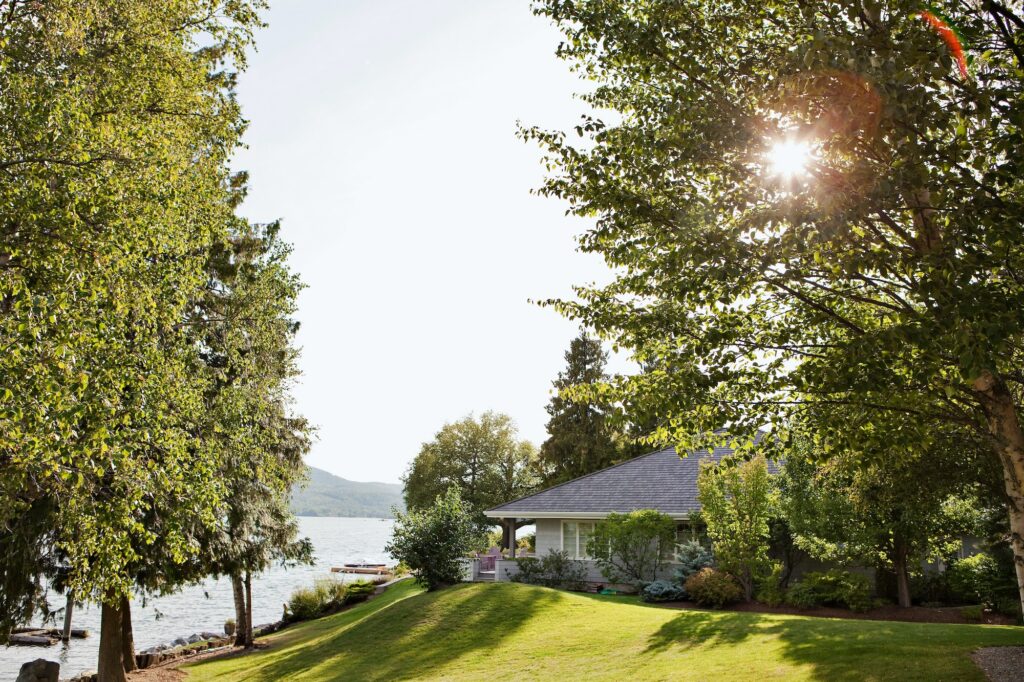
Cons of Buying a Lake House
• Higher Price Tag
The privilege of owning a lakefront property often comes with a higher price tag. The exclusivity and demand for such properties can lead to inflated prices.
• Environmental Considerations
Lakefront properties require responsible stewardship of the surrounding ecosystem. Being in close proximity to water entails a responsibility to maintain water quality and preserve local flora and fauna.
• Maintenance Challenges
Exposure to water, wind, and other natural elements can lead to increased maintenance needs. Regular upkeep is essential to prevent deterioration from moisture-related issues.
• Risk of Flooding
Living close to water carries the inherent risk of flooding, especially in regions prone to heavy rainfall. Adequate insurance coverage and flood preparedness are crucial.
• Limited Available Properties
Lakefront properties are often limited in supply, making them a competitive market. Finding the perfect property may require patience and a willingness to act swiftly.
• Seasonal Fluctuations
Some lakefront areas experience fluctuations in population and activity based on the seasons. Summers might be lively, while winters could be quieter.
• Property Regulations
Lakefront properties are subject to specific regulations aimed at protecting the natural environment. These regulations can impact what you can and cannot do with your property.
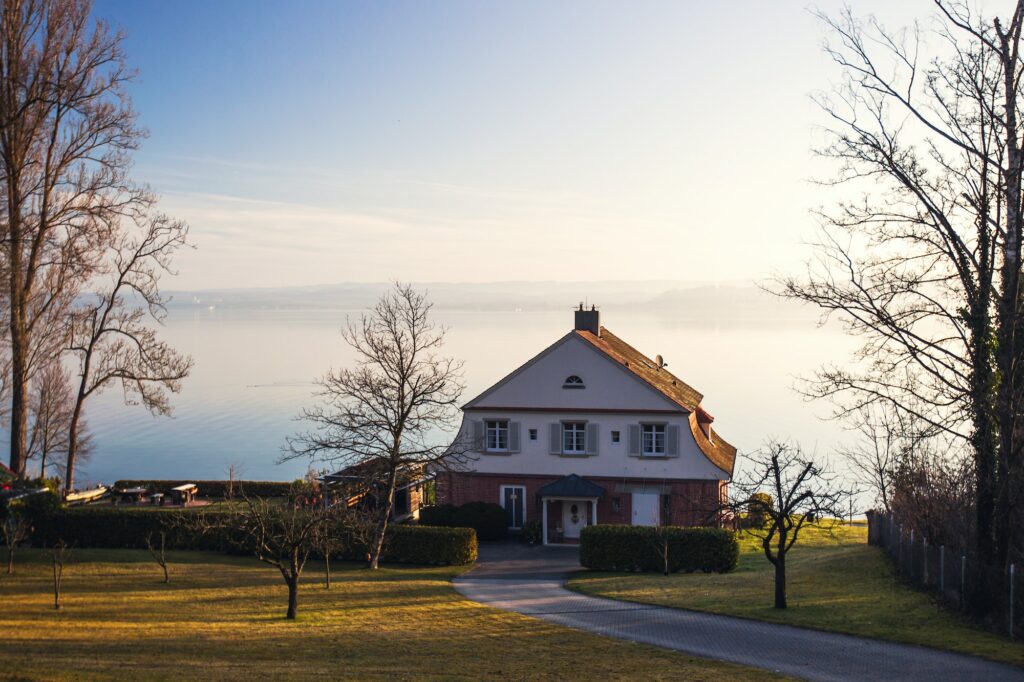
Lake House Maintenance Tips
Maintaining a lake house is not just about enjoying serene waterside views; it’s also about preserving the beauty and functionality of your property. Proper lake house maintenance ensures that your retreat remains a haven of relaxation for years to come. From structural upkeep to landscaping and safety measures, a well-maintained lake house promises memorable experiences for you, your family, and your guests.
Structural Care
Regular inspections of your lake house’s structural elements are essential. Check for signs of wear and tear, such as deteriorating wood, cracks in the foundation, or loose shingles. Address any issues promptly to prevent further damage. Engage in routine cleaning and repainting to protect against the harsh effects of lakefront weather. Adequate insulation and weatherstripping can enhance energy efficiency and indoor comfort.
Waterside Maintenance
Proximity to the lake demands specific attention to waterside maintenance. Keep an eye on erosion along the shoreline, using native plants and rocks to stabilize the area. Regularly clean and inspect docks, boat lifts, and retaining walls for signs of corrosion or damage. These waterfront features not only contribute to the aesthetics but also play a crucial role in lake house functionality.
Landscaping and Curb Appeal
A well-manicured landscape not only enhances your lake house’s curb appeal but also safeguards it from potential issues. Trim trees and bushes to prevent branches from damaging the house during storms. Planting native vegetation helps maintain a balanced ecosystem and reduces the risk of invasive species. A visually appealing garden adds to the relaxing ambiance of your lakefront haven.
Plumbing and Septic Systems
The unique environment of a lake house requires specific attention to plumbing and septic systems. Regularly inspect pipes, faucets, and toilets for leaks to prevent water wastage and damage. Properly maintain your septic system through regular pumping and following recommended usage guidelines. A well-functioning plumbing system ensures a seamless and sustainable lakehouse experience.
Safety Measures
Prioritize safety to enjoy worry-free lake house living. Install and maintain smoke detectors, carbon monoxide alarms, and fire extinguishers. Regularly test electrical systems and replace worn-out wiring. If your lake house has a fireplace or chimney, have it professionally cleaned to prevent chimney fires. Adequate safety measures provide peace of mind, especially during extended stays.
Seasonal Care
Adjust your lake house maintenance routine according to the seasons. In colder months, drain and winterize water pipes and outdoor features to prevent freezing. During warmer months, focus on pest control to keep unwanted guests at bay. Regularly clean gutters to prevent clogs and water damage. Adapting maintenance tasks to seasonal changes ensures year-round comfort and protection.
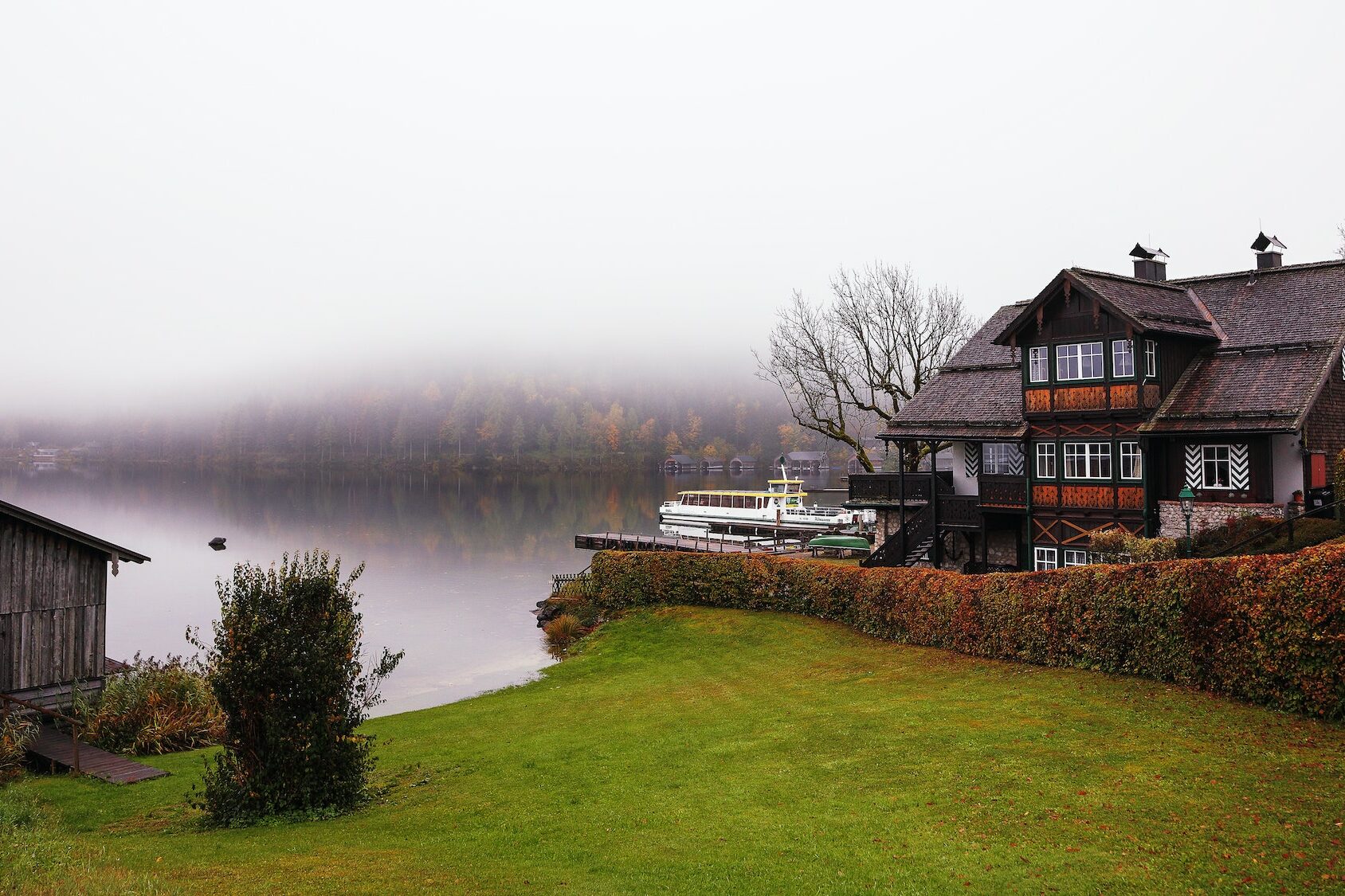
FAQs
How do I find lakefront properties available for sale?
Real estate listings, property websites, and local realtors are excellent resources for finding available lakefront properties that match your preferences.
What is the typical maintenance routine for a lakefront house?
Regular maintenance includes addressing issues related to water exposure, such as corrosion, mold prevention, and monitoring the stability of shoreline structures.
Can I use a lakefront property as a vacation rental year-round?
Yes, you can certainly rent out your lakefront property as a vacation home, but local regulations and weather conditions may influence its year-round rental feasibility.
Are there any safety concerns associated with living by the water?
While water safety is a consideration, responsible precautions such as fencing and supervision can mitigate potential risks.
Is lakefront living suitable for families with children?
Absolutely! Many families find that lakefront living offers a wholesome environment for children to explore nature and engage in outdoor activities.
